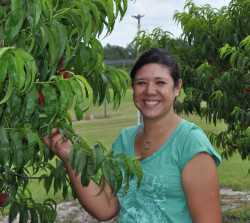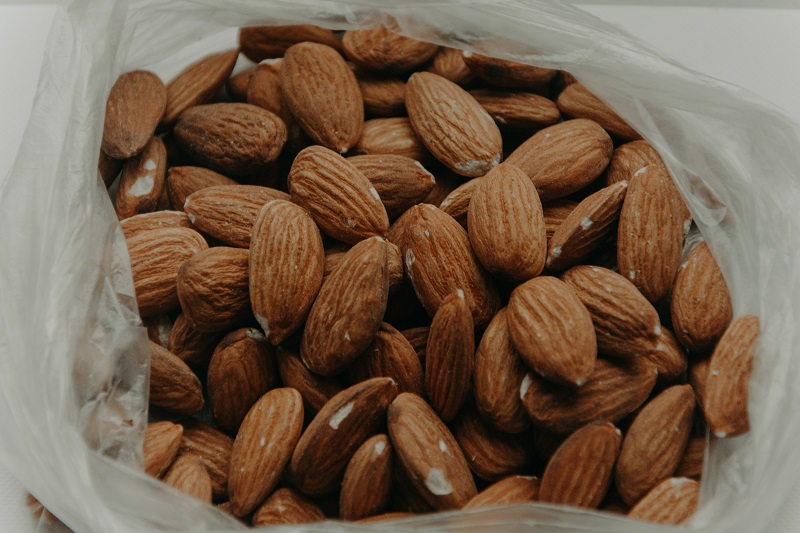Young Growers, Researchers Need To Work Hand In Hand

Communication between growers and local Extension is critical to solving problems in the field. Mercy Olmstead, UF/IFAS Extension fruit specialist and assistant professor, is familiar with the day-in, day-out problems fruit growers around Florida face.
Honed in on horticulture, here’s what she has to say about building successful agri-relationships and more.
Outside of your education path, what sort of farming background do you have?
Mercy: Well, as a city kid from a Detroit suburb, my farming experience is limited to both my mother, father and grandfather being excellent gardeners and horticulturists. However, this spurred my interest in horticulture and led to where I am now. I am very grateful having met my husband and fellow UF/IFAS faculty member Jim (whose family grows cherries, apples, apricots, and wine grapes in the Yakima Valley) for his farming experience and to my father-in-law for letting me get familiar with driving a tractor again every time I visit the farm.
Do you have regular communication with fruit growers?
Mercy: Yes, I am always available to communicate with my fruit growers in the state. Many of them have my cell phone and text me, which is a great way to get pictures and catch them while they are in the orchard. I am a techie girl, so I love working by eMail and smartphones.
What are some of the primary challenges growers are dealing with, and what can you do to help them?
Mercy: One of the primary challenges our growers are having in the Florida fruit industry is citrus greening. Most of my growers are seeking to diversify their citrus operations and have chosen peach production as one of their crops, which is fantastic. Growers here are able to harvest the first domestically produced peach in the U.S. and they have a great market advantage. However, with this transition to a crop that is decidedly more high-maintenance, I try to get out to their potential orchard sites, see young trees after planting and help them shape trees for whatever training system they choose. The biggest challenge in peach production is probably pruning to gain a balance between fruit yield and fruit size.
What are some areas in which you would like to focus in the future and how might these be of benefit to growers?
Mercy: There are at least three areas that I am interested in that would help growers to optimize their production efficiency, and those are nutrition (both identifying the best rate and timing in our subtropical climate), irrigation for vegetative growth control and water savings, and identifying practices that enhance peach flavor development to link with consumer preferences. Many of the fruit grown in Florida have non-melting flesh. And although it’s typically been associated with the canning peach industry, we are able to keep them on the tree longer so that they are “tree-ripe,” with greater maturity, flavor and aroma development, while maintaing excellent shipping potential. However, many consumers are unfamiliar with this texture for fresh eating, and there is a learning curve with consumers that must be met.
How should the role of Extension change or adapt in the future?
Mercy: University Extension over the years, as with many research programs, has been eroded by budget cuts, which has reduced my ability to do what I love — which is to meet with growers at their orchard sites, and be “on the ground.” Extension has to change to do more things remotely. However, this won’t replace my desire to get out and talk to growers and ask questions. Extension has to be able to find easy and tangible ways of measuring our impact. Although many of our clientele roll their eyes when I mention another survey, it’s the only way that we can be held accountable for our activities and measurement of increased knowledge gained by our growers. I am hoping for better, faster, and more impactful methods of getting this data in the future.









